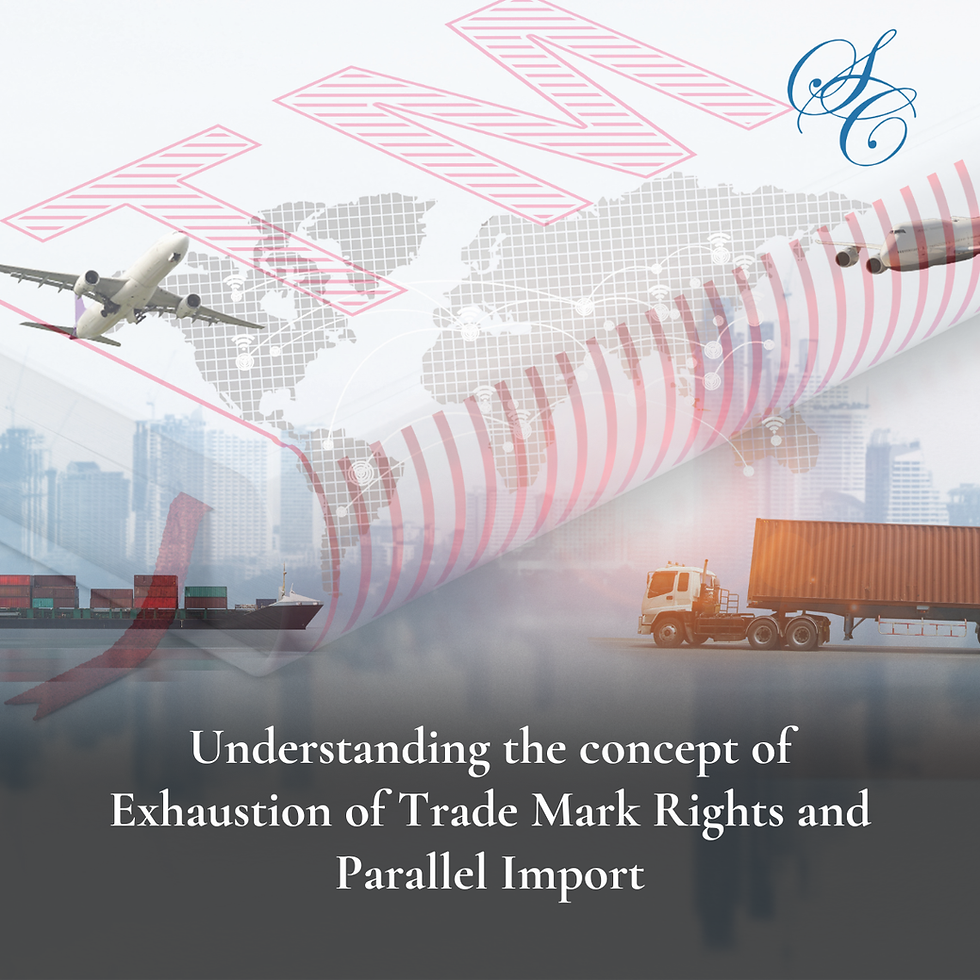A Legal Shield for COVISHIELD
- Sarwajeet Singh
- Feb 17, 2021
- 3 min read
Our Associate, Vishesh Kumar discusses “A Legal Shield for COVISHIELD”
Over the last year, while the world struggled with the COVID virus and pharmaceutical companies raced to create a vaccine, IP enthusiasts throughout the world wondered about the legal (and moral) ramifications of COVID formative marks and their registration.
Interestingly, one such question came up before the Pune District Court where the plaintiff, Cutis Biotech, filed a suit alleging passing off against Serum Institute of India Pvt. Ltd., the manufacturer of a COVID-19 vaccine in India under the mark COVISHIELD.

The plaintiff contended that, in April 2020, it coined the word COVISHIELD and applied for registration for the mark in Class 5 in respect of veterinary, ayurvedic, allopathic, medicinal and pharmaceutical preparations. The plaintiff further claimed that, in May 2020, it started using the mark for surface sprays and sanitizers and submitted invoices and sales figures in support of its contentions.
Subsequently, the plaintiff came to know of the defendant’s vaccine named COVISHIELD.
The plaintiff contended that, owing to a common field of activity and the plaintiff being the prior user, the defendant’s use of the COVISHIELD mark is clearly violative of its rights.
On the other hand, counsel for defendant argued that the goods of the parties are clearly dissimilar and owing to the dissimilarity coupled with nature of products, visual appearance and other factors, there exists no likelihood of confusion. The defendant also argued that since the plaintiff had only started using the mark recently, it had built up no goodwill or reputation in the mark. The defendant also argued that a grant of an injunction to the plaintiff, at this stage, will surely harm the country’s fight against the COVID-19 virus.
Lastly, the defendant also argued that plaintiff had not approached this court with clean hands and had actively concealed the application the plaintiff had filed for the mark COVISHIELD in Class 5 covering vaccines for human use.
The court, after perusing the arguments and case laws submitted by both parties, held that prima facie, the visual appearances of both products is totally different. The court also held that, in addition to visual appearance, the purpose and consumers of the product are totally different.
In this regard, the court also gave due weightage to the fact that presently only the Indian government is purchasing the defendant’s vaccines under the COVISHIELD mark as well as the fact that there has been no attempt on part of the defendant to mislead or deceive consumers.
The court also considered precedent law to hold that simply because the defendant had applied for registration for a broad specification of goods, it will not grant it monopoly over all the goods covered by that Nice Classification, if use of the mark is restricted to only very specific goods.
In light of the above, the court held that the plaintiff had failed to satisfy the necessary elements to prove passing off and there was no prima facie case or likelihood of confusion. On the contrary, the court held that the balance of convenience was actually in the defendant’s favour since, if the defendant was restrained from using the COVISHIELD mark at this stage, it would cause great hardship to the people of the country. On the other hand, in the event an injunction is not granted, the plaintiff’s goods could continue to be sold in the market without any confusion.
Lastly, while refusing the injunction, the court also took into account the fact that the plaintiff had indeed concealed a material fact and not approached the court with clean hands.
This is surely an interesting development where the court has taken into account greater public good in a trademark case while also drawing a distinction between goods covered by the same Nice Classification. While goods falling in the same class are often deemed to be similar/related, the Court, in this case, did an appreciable job of inferring prior judgments in the correct manner to disallow monopoly over all goods of a class when the use itself is limited to certain specific goods.
Nevertheless, it would be interesting to see if the plaintiff decides to appeal against the order and approach the High Court.




Comments